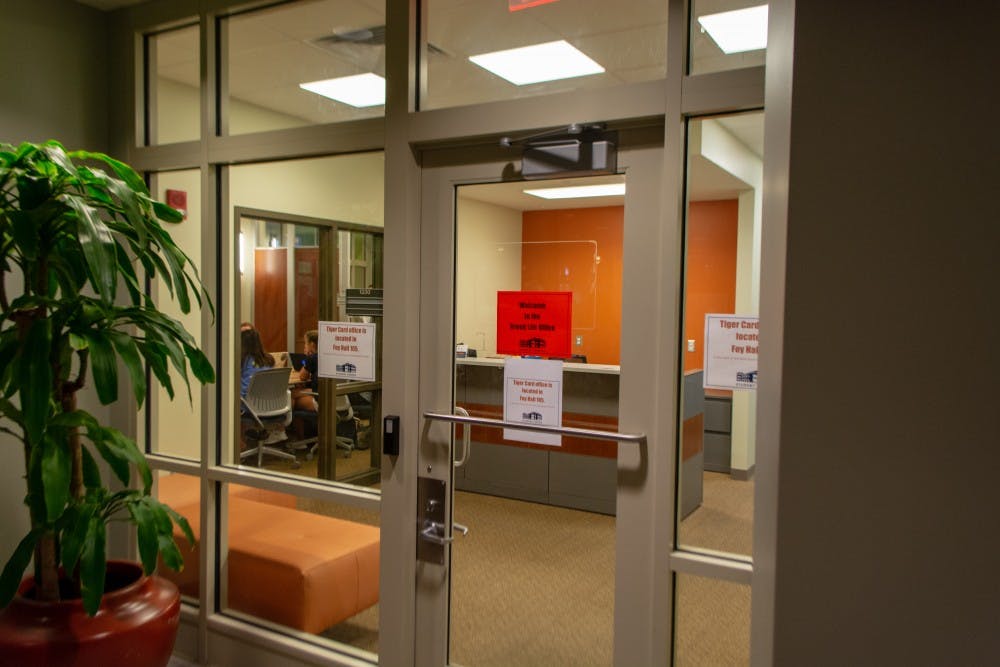On Sept. 11, the Department of Campus Safety and Security sent a safety advisory to Auburn students and employees informing them that two women believed they had been involuntarily drugged while at unauthorized fraternity gatherings.
“We received two reports in the past week in which students believe they were involuntarily given a drug at unauthorized fraternity-related gatherings,” the email said. “One reported losing control of her body after drinking two alcoholic beverages. The other report was an anonymous report that did not provide details.”
The email then detailed what steps an individual who believes he or she has been drugged should take and reminded people that “giving someone a drug without their permission is considered aggravated assault and is a felony.”
Shortly after the email was sent, Regan Moss, junior in microbiology and neuroscience, posted a self-edited version of the email on social media.
“What are the names of the fraternities?” she asked on Instagram. “At what point in time will we hold people accountable for their actions? Or will we continue with the performative activism that precipitates and facilitates the Auburn climate, further marginalizing many students, faculty and staff and others in the great Lee County area?”
Moss then added additional resources to the letter for people who believe they have been drugged and emphasized the importance that the University believes and supports anyone coming forward with allegations like these.
She said she provided this “feedback” to the University with the hope that it would spur more substantial action.
“I think a lot of it starts with how we talk about those issues,” she said. “By sending an email with really impoverished wording and really impoverished resources, I was just very angered by how unhelpful that was.”
Each of the advisory emails sent by Camus Safety following these allegations is nearly identical.
“By and large in the world, but also specifically at Auburn, there’s a lot of this power culture where people aren’t really supported when they do come forward with allegations,” Moss said. “Yeah, we’ve gotten five emails, but I guarantee there’s so many more people that didn’t even feel supported.”
Moss said her frustrations come in part from the frequency and repetition of these kinds of allegations.
These two claims of illegal druggings constitute the fourth and fifth reports of similar events taking place at fraternity events since August 2018.
In fact, every time Campus Safety has issued an advisory about drugging allegations in the last two years, they have said that the person believed they were drugged at some kind of fraternity event.
When first asked about the most recent allegations, Greek Life director Ryan Powell and Interfraternity Council president Mason Blevins gave nearly identical statements.
“The Interfraternity Council does not comment on open and ongoing investigations,” Blevins said. “We encourage anyone who believes they are victims of a crime to contact the Auburn Police Department, and to follow the guidance provided in the Campus Safety Advisory disseminated on Friday, Sept. 11, 2020.”
The only difference in Powell’s statement was that it said “Auburn University,” instead of “The Interfraternity Council.”
Later, Powell said that even though every allegation of a drugging announced by Campus Safety for the past two years has involved a fraternity event, it is not a problem exclusive to Greek organizations.
“As stated in the Campus Safety Advisory, ‘this type of crime can occur anywhere,’ and it is everyone’s responsibility to help prevent a crime like this from occurring,” Powell said. “Campus Safety typically limits campus notifications to incidents that are reported on property owned or controlled by the University. While the messages may address a specific incident or event, the preventative measures and reporting mechanisms outlined are directed to everyone in the Auburn community, and therefore the responsibility to address these behaviors falls to us all.”
In the same timeframe as the five allegations of drugging, Campus Safety has sent out a total of 28 notices or advisories not including the ones about the COVID-19 pandemic.
According to the Auburn University 2019 Annual Security and Fire Safety Report, these kinds of advisories are triggered by certain types of events which could potentially pose a serious or ongoing threat to the campus community.
Of the 28 advisories or notices which have been sent out, four have been about potentially severe weather and six have not been connected to a specific location.
Of the remaining 18, 12 of the Campus Safety advisories have been about events on campus and six have been about events near or off campus.
Included in the 12 on-campus advisories are multiple allegations of sexual assault or stalking at residence halls, but every instance of a drugging allegation mentioned takes place at a fraternity event.
Powell, along with administrators at Student Conduct said they have been — and are continuing to — take steps to discourage and prevent these crimes.
“Intervention and accountability measures are an ongoing and ever-present need for colleges and universities,” Powell said. “It is our goal that these efforts create a healthier and safer student experience.”
Nick Wiard, director of Student Conduct, and Eric Smith, director of Health Promotion and Wellness, said that more so than any particular punishment, the best way to stop druggings at events is by changing the culture which they are currently taking place in.
“An issue like an alleged drugging or another aggravated assault, whether it’s a fight, or it’s a public intoxication where someone is really bad off — no matter the situation — we want to be able to get out in front of those situations,” Wiard said. “We want to make sure that other students are intervening because they’re in those spaces.”
Many of the programs designed to enable students to step up and prevent these types of crimes are promoted early and often at Auburn.
“Since [2014] every student has experienced multiple educational moments from the time they’re in Camp War Eagle about reporting this stuff, recognizing this stuff and the definitions of these issues,” Smith said. “We’ve gotten a lot more out there.”
Wiard, whose department handles investigations and any punishments regarding student behavior said he hopes that these prevention methods will eventually make his job obsolete.
“My belief is that the way we can be the most successful is to get to a campus environment where there are no reports because this behavior is not happening because someone has intervened, because someone has stepped up,” he said.
Do you like this story? The Plainsman doesn't accept money from tuition or student fees, and we don't charge a subscription fee. But you can donate to support The Plainsman.





